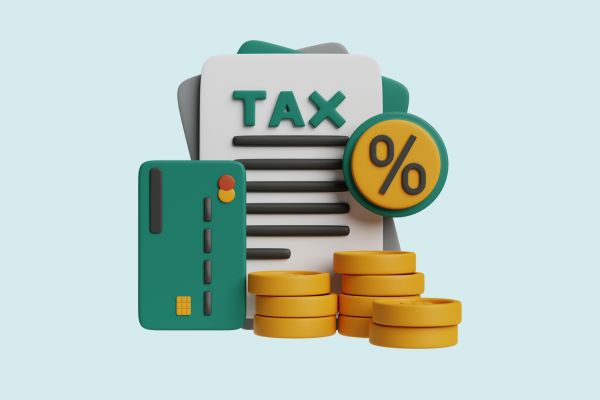Official Dispatch No. 27296/CTHN-TTHT 2024 providing guidance on how non-interest bearing loans will be subjected to tax assessment.
Interest-free loan will be subject to tax assessment as guided by Official Dispatch 27296/CTHN-TTHT 2024?
On May 10, 2024, the Tax Department of Hanoi issued Official Dispatch 27296/CTHN-TTHT 2024 regarding tax policy guidance on loan interest.
In Official Dispatch 27296/CTHN-TTHT 2024, the tax guidelines for interest-free loans are as follows:
- If the parent company lends to the subsidiary without interest (0% interest rate), it falls under the regulatory scope of Decree 123/2020/ND-CP. The company must comply with Clause 1, Article 8 of Decree 132/2020/ND-CP and other related regulations.
- If an organization, not operating under the Law on Credit Institutions, infrequently engages in lending activities and lends to a company without interest or at a lower interest rate than the market rate for the same term and scale, it falls under the tax assessment case as stipulated in Clause 1, Article 50 of the Law on Tax Administration 2019.
- Capital contribution activities (capital increase) as regulated by law are not subject to the scope of adjustment of the Law on Value-Added Tax and the Law on Corporate Income Tax.
- If loan interest is converted into contributed capital and a company shareholder transfers the contributed capital, the individual/entity transferring the contributed capital must pay personal income tax (PIT)/corporate income tax (CIT) as per the regulations in Clause 4, Article 2 of Circular 111/2013/TT-BTC and Article 14 of Circular 78/2014/TT-BTC.

Interest-free loan will be subject to tax assessment as guided by Official Dispatch 27296/CTHN-TTHT 2024?
Under what circumstances are businesses subject to tax assessment?
According to Clause 1, Article 50 of the Law on Tax Administration 2019 which stipulates:
Tax assessment on taxpayers violating tax laws
1. Taxpayers are subject to tax assessment when they fall into one of the following tax law violation cases:
a) Failure to register for tax, failure to submit tax declarations, failure to supplement tax records as required by tax authorities, or inaccurate, inadequate, and dishonest tax returns;
b) Failure to reflect or inadequate, dishonest, and inaccurate reflection of data on accounting books to determine tax obligations;
c) Failure to present accounting books, invoices, documents, and necessary materials related to tax payment determination within the prescribed time;
d) Failure to comply with decisions on tax audits or inspections as regulated;
e) Buying, selling, exchanging, and recording the value of goods and services not according to the usual transaction value on the market;
f) Buying or exchanging goods using illegal invoices, using illegal invoices with real goods determined by competent authorities and declared as taxable revenue;
g) Exhibiting signs of fleeing or dispersing assets to avoid tax obligations;
h) Conducting transactions contrary to economic nature, not as per the actual occurrence to reduce taxpayer's tax obligations;
i) Failing to comply with regulations on declaration obligations, determining transaction prices of related parties, or not providing information as required for tax management of enterprises involving related transactions.
...
As such, if an enterprise falls into one of the above cases, it will be subject to tax assessment.
*Note: When subject to tax assessment, the enterprise must comply with the tax authority's requirements and pay the assessed tax.*
Who has the authority to assess tax?
Based on Article 16 of Decree 126/2020/ND-CP, it is stipulated:
Authority, procedures, and tax assessment decision
1. Authority to assess tax
The General Director of the General Department of Taxation; Directors of Tax Departments; Heads of Tax Offices have the authority to assess tax.
2. Tax assessment procedures
a) When assessing tax, the tax authority must notify the taxpayer in writing about the tax assessment and issue a tax assessment decision. The decision must clearly state the reason for the tax assessment, the basis for the tax assessment, the assessed tax amount, and the tax payment deadline.
b) If the tax authority conducts the tax assessment through tax audit or inspection, the reason, basis, assessed tax amount, and tax payment deadline must be recorded in the tax audit or inspection report and the tax handling decision of the tax authority.
c) If the taxpayer is subject to tax assessment as regulated, the tax authority shall impose administrative fines and calculate late payment interest according to the law.
3. Tax assessment decision
a) When assessing tax, the tax authority must issue a tax assessment decision according to Form No. 01/ADT in Appendix III attached to this Decree and send it to the taxpayer within 03 working days from the signing date of the tax assessment decision;
In case the taxpayer is subject to tax payment based on a notice from the tax authority, the tax authority is not required to issue a tax assessment decision as regulated in this clause.
b) The taxpayer must pay the assessed tax amount according to the tax handling decision of the tax authority. If the taxpayer disagrees with the assessed tax amount, they must still pay the tax and have the right to request the tax authority to explain or appeal or file a lawsuit regarding the tax assessment.
Therefore, according to the above regulations, the authority to assess tax includes:
- General Director of the General Department of Taxation;- Directors of Tax Departments;- Heads of Tax Offices with the authority to assess tax.
LawNet